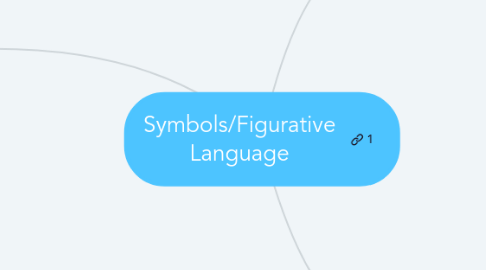
1. "Papa's Waltz"
1.1. Main Symbol: Waltz/dance
1.1.1. "But I hung on like death: Such waltzing was not easy."
1.1.1.1. This quote symbolizes how the little boy is so dependent on his father and is clinging on to him both physically and metaphorically.
1.1.2. "The hand that help my wrist was battered on one knuckle;"
1.1.2.1. This quote shows how the father might be somewhat abusive or have anger issues, but despite this, the son is still wanting to dance with him. It also shows irony because the father is so rough and tough, yet he is attempting to dance an elegant dance.
1.2. "You beat time on my head"
1.2.1. This again symbolizes the aggressiveness of the father because he is "beating" the time
1.3. "But I hung on like death:"
1.3.1. This is a simile and personification. You are comparing a person and death holding on very hard, as well as personifying death as being able to hold on like a human. This figurative language as previously stated shows how the son is dependent on his father and doesn't want to fall.
2. "The Changeling"
2.1. Symbol: The Closet
2.1.1. "In my brother's closet, I'd change into his dungarees - - the rough material molding me into boy shape;"
2.1.1.1. The closet could potentially symbolize hidden sexuality as the girl "molds" into a boy when she is in the closet and must abandon this identity when she is out of it.
2.2. Main Symbol: The Kitchen
2.2.1. ". . .to shed my costume, to braid my hair furiously with blind hands, and to return invisible, as myself,"
2.2.1.1. This quote shows how the kitchen critiques the gender roles and the girl doesn't want to conform to what society (in this case her mother) expects from her. In the Kitchen, she is invisible and unable to be her true self.
2.2.2. "...and to return invisible, as myself to the real world of her kitchen."
2.2.3. "She was not amused by my transformations, sternly forbidding me from sitting down with them as a man."
2.2.3.1. These quotes show how the main author feels pressured by her mother to conform with specific gender roles in "the real world" such as being invisible, more feminine, and staying the kitchen.
2.3. Literary Device: Personification of "blind hands"
2.3.1. ". . . and to return invisible, as myself"
2.3.1.1. This literary device relates to the idea that the girl feels unseen and invisible when she is herself.
3. "My Father's Song"
3.1. Main Symbol: Sand
3.1.1. "We took them to the edge of the field and put them in the shade of a sand moist clod."
3.1.1.1. This quote shows how the sand symbolizes shelter and comfort. The sand in this instance is providing the shelter to the mice that the author and his father found.
3.1.2. "I remember the very softness of cool and warm sand and tiny alive mice."
3.1.2.1. The use of the language "soft" and "cool"establish the sense that the sand is comforting. By saying the mice are alive helps the sand symbol come across as a representation of safety that the author might gather from these experiences with his father.
3.2. "...the plowshare had unearthed the burrow nest of a mouse.."
3.2.1. This symbolizes things that are small and often hidden or taken for granted. It sort of represents how the son had taken advantage of the father while he was alive and is remembering the little things that his father did.
3.3. "His voice, the slight catch, the depth from his thin chest.
3.3.1. This is sort of an oxymoron because his father has a very thin chest, but his voice still is very deep.
